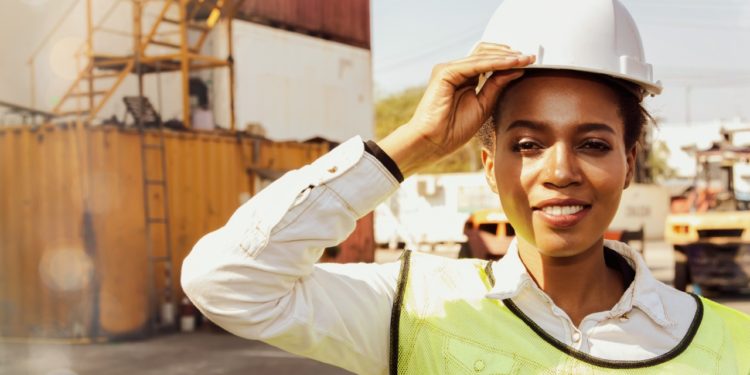With significant barriers to entry preventing the equal participation by women in energy, African Energy Week in Cape Town aims to address these challenges by emphasizing the role that women will play in Africa’s energy future.
Continued gender disparity, inequality, and barriers to entry not only directly prevent women from participating in the energy industry, but dramatically constrain economic and sector growth. As the continent moves to make a significant energy sector transformation – on the back of new discoveries, a shift to renewable solutions, and evolving technology -, women have a fundamental role to play in driving Africa’s energy future, and African Energy Week (AEW) taking place in Cape Town on the 9th-12th of November aims to emphasize it.
AEW 2021 considers women to be the key drivers of Africa’s energy revolution and should, therefore, comprise notable participants in the workforce. As Kenyan President Uhuru Kenyatta stated at the 4th Africa Business Forum 2021, “if you leave out women, who compose 50% of the population, you have locked out 50% of the workforce and reduced your capacity for growth by 50%.” However, even those involved in the energy industry continue to play an insignificant role compared to their male counterparts. As the World Bank’s Energy Sector Management Assistance Program notes, the average share of women working in technical positions in the energy industry was 15% with most women working in administrative positions.Rather than driving gender inclusivity, the energy industry actually represents one of the most unequal fields worldwide,hindering any effective growth from taking place.
Ironically, studies have shown that companies with women in seniority and leadership positions actually have a higher success rate compared to male-dominated organizations. Notably, the World Economic Forum (WEF) posits that companies with strong female leadership deliver a 36% higher return on equity, and companies with at least one female executive board member outperform those with male-only boards. Additionally, energy sector organizations that improve gender equality tend to boost innovation. The role of women is, therefore, clear and yet there continues to be significant barriers to entry that AEW 2021 aims to address.
One of the most notable challenges faced by women in the energy industry comprises the continuous underrepresentation of women in Science, Technology, Engineering and Mathematics (STEM) education. With STEM comprising the driving force of the energy sector – particularly in the modern era with technological and renewable solutions relying heavily on innovation -, human capital development is essential, and yet women continue to be excluded. According to the WEF, women continue to remain underrepresented among STEM graduates, where the global gender gap stands at 47% with 30% of male students graduating from STEM subjects in contrast to only 16% of female students. Social norms and traditional cultural values promoting STEM as a male domain have resulted in many women turning to alternative professions, despite the potential they hold in driving Africa’s energy future. AEW 2021 aims to directly address these challenges, and places women at the forefront of not only the events agenda, but of Africa’s energy agenda. By uniting speakers from both the educational and energy sectors, AEW 2021 will drive a discussion on increasing women’s participation by addressing the root of the problem – inclusion and representation.
However, the challenges faced by women transcend the educational sphere, with barriers to entry within the workforce resulting in reduced participation in the energy industry. Typically, the energy sector has been a male-dominated industry, in which leadership positions, executive roles, and non-administrative positions are generally favored towards men. It is not enough that women have to struggle for their place at the education table in STEM, but once they enter the workforce they now have to compete for their participation. AEW 2021 is focused on removing these barriers to entry, emphasizing the role of organizations in ensuring equality, particularly in terms of job applications, interviews and employments across every level of the value chain and within various positions in the hierarchy. By not only establishing policies that address the gender gap, but ensuring implementation, the African energy sector has the opportunity to be a globally leading sector in gender equality and inclusivity, driving sectoral and economic growth in the process.
AEW 2021 not only recognizes the value and contribution of women to the energy industry, but views women as a catalyst for energy sector success. Through solution-based workshops and insightful panel discussions led by women across the education, energy, and policymaking sectors, AEW 2021 provides the ideal platform whereby women’s role in energy can be identified, emphasized, and put into action. Africa’s energy future is not only determined by investment and technology, but by innovation and education, all enabled by women’s increased participation. Women are the future, and AEW 2021 will ensure they take up their rightful place at the table.
“If you educate a man, you educate an individual, but if you educate a woman, you educate a nation.”









